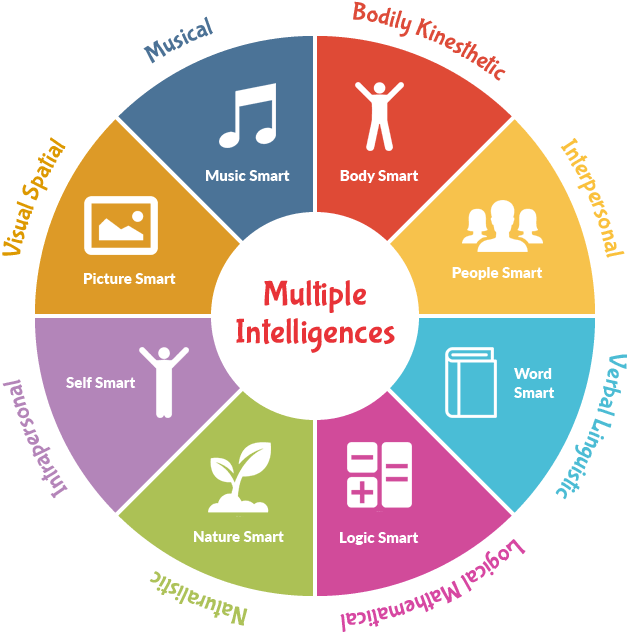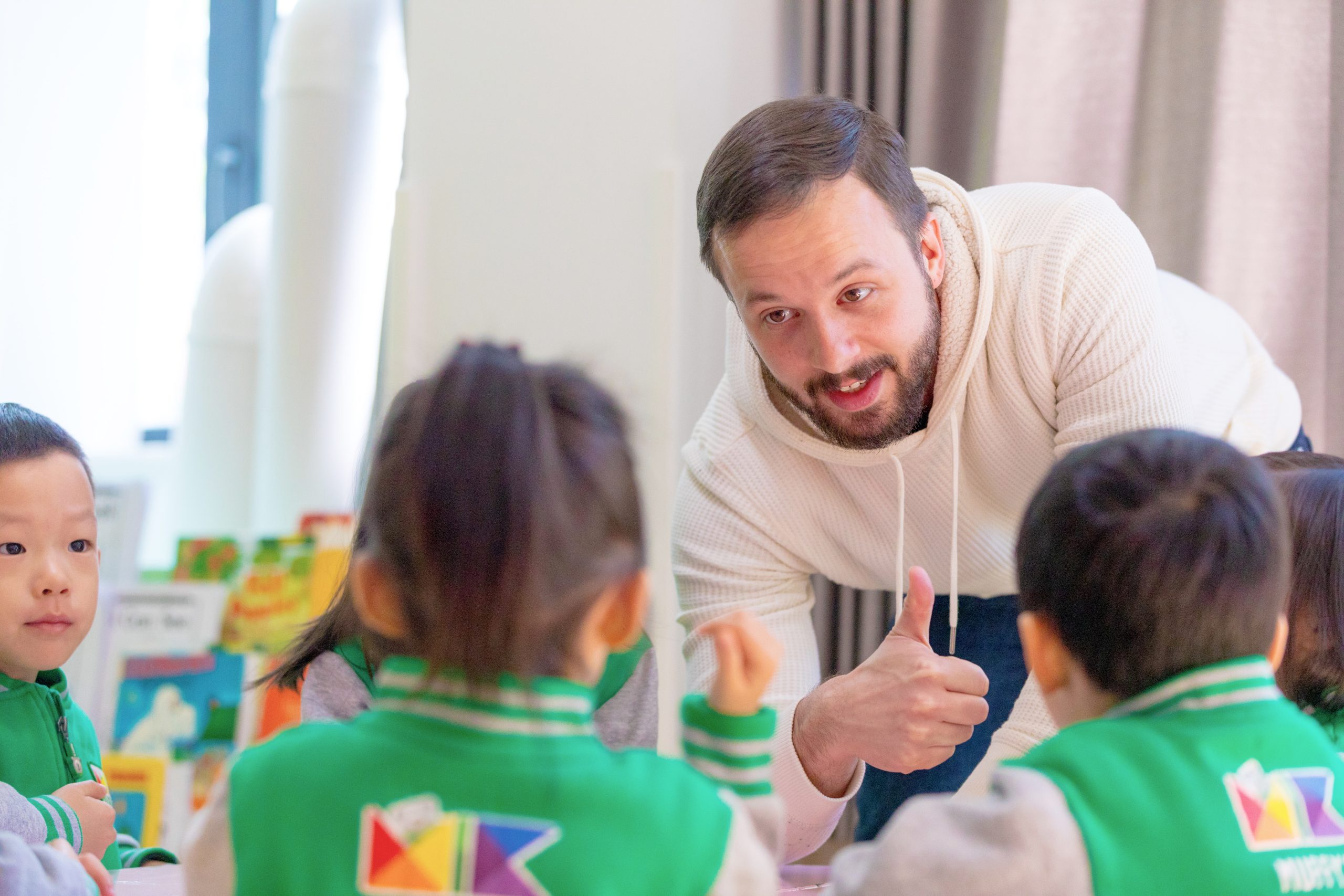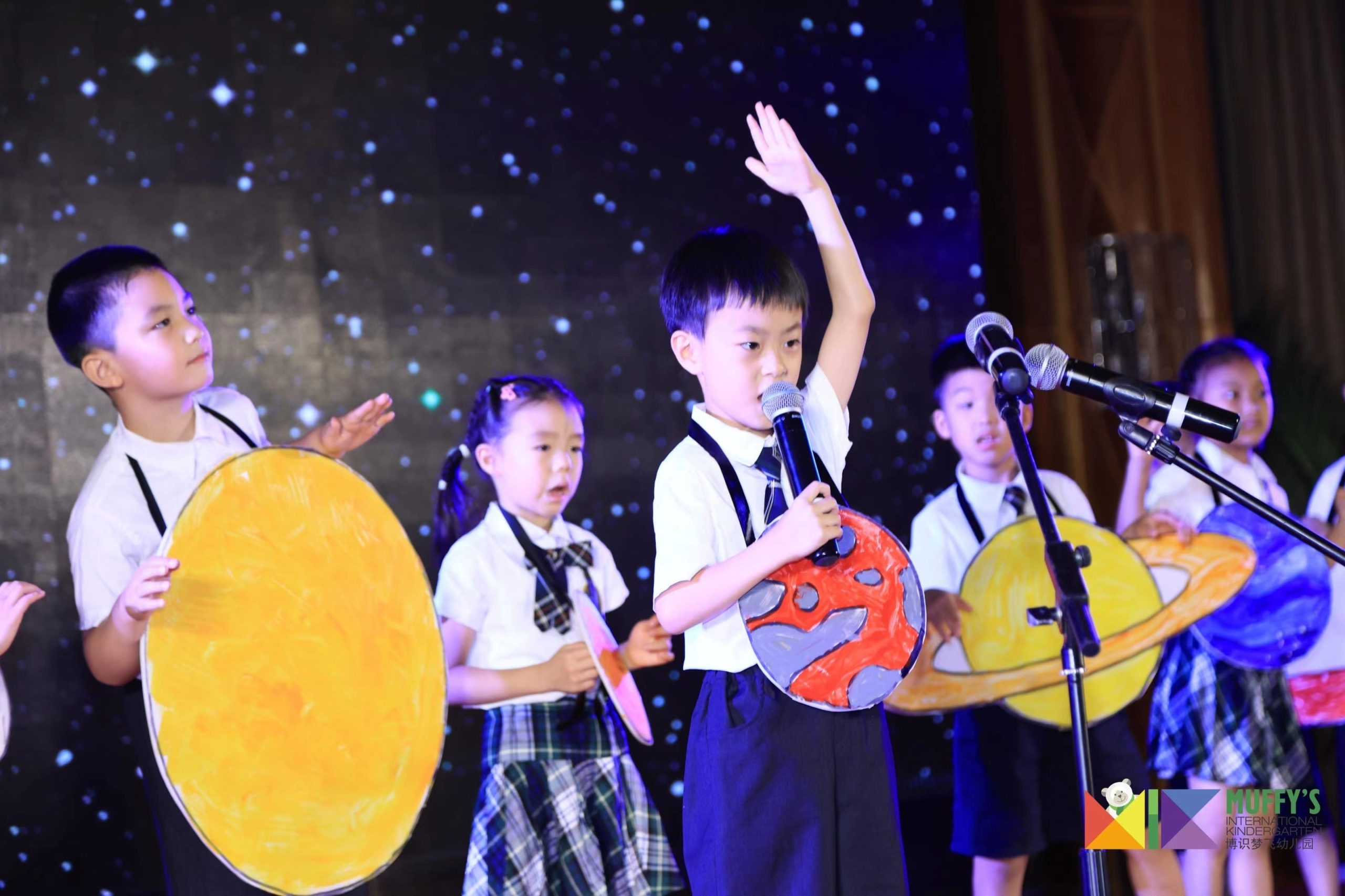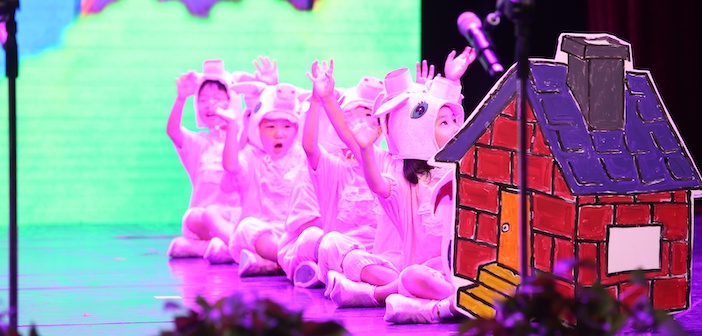Recently a video on Douyin went viral that featured a momfluencer explaining how by using the multi-intelligence (MI) chart, you can pinpoint exactly what extracurricular activities are best suited for your child based on their abilities and interest. She goes on to explain how this is a better approach than letting them experience everything because there’s a chance that if they dislike the teacher during a trial class, it can influence their entire outlook on the activity.

Sounds interesting doesn’t it? Has she discovered a shortcut to parenting and putting your kid ahead of the game?
To learn more about multi-intelligence, we reached out to two schools in Beijing that use it in their curriculum. Check out this two-part series as we chat with experts from Ivy Academy and Muffy’s International Kindergarten about MI and their views on this parenting hack.
Nigel Mainville has been with Muffy’s International Kindergarten for almost 9 years and has worked as a paraprofessional in Special Education at an American public school prior to returning to Beijing to teach.
Muffy’s International Kindergarten’s story began in 2004 as “Muffy’s Education,” a small English immersion school in Beijing. Muffy’s founder envisioned a school that felt like a family, one that provided quality education grounded in care for children and respect for parents. 17 years later, Muffy’s has grown to include over 700 students and they still feel like family. Using Howard Gardner’s Multiple Intelligence Theory as the backbone of their curriculum, their education philosophy has evolved to emphasize social, cognitive, and character development alongside the goal of language acquisition and proficiency.
Let’s start by explaining what MI is.
Multiple Intelligences Theory was created by Howard Gardner, a Harvard childhood education expert. Dr. Gardner felt that traditional methods of measuring IQ neglected other ways children and adults can demonstrate intelligence, and divided human intelligence into 8 categories: linguistic intelligence (reading, writing, speaking, debating), logical intelligence (mathematics, problem-solving, and pattern recognition), artistic intelligence, musical intelligence, bodily/kinesthetic intelligence (movement and coordination in sports and exercise), interpersonal intelligence (social behavior), intrapersonal intelligence (self-awareness and self-esteem), and naturalistic intelligence (knowledge and classification of things in nature). Dr. Gardener believes traditional methods of teaching and IQ testing place an overwhelming focus on the first two categories (linguistic and logical). By diversifying teaching methods and observing each child’s unique expression of intelligence, we are more able to effectively teach the whole child. This leads to happier, more confident children who make greater progress in school and life. It should be noted that Dr. Gardener believes each person possesses and can improve in all 8 intelligences, but that each individual can have preferred ways of engaging in learning and expressing their intelligence. Being good at one does not mean an individual must dislike or completely lack another.

Based on your experience as an educator, is there one type of curriculum that’s better than others?
Nigel Mainville (NM): My experience has mostly been with early childhood education, so I can only speak from that perspective. If a child is attending kindergarten in their native language, I think play-based, exploratory, student-led learning like that of Montessori and Reggio programs is incredibly beneficial. Their use of a wide array of centers means there should be items in the classroom that appeal to all 8 intelligences, and students and teachers will naturally find the talents and aptitudes of each student and be able to communicate them to parents.
However, when a child is learning a second language, even in an immersion program, they need more structured, teacher-led activities to create language opportunities, or more opportunities for listening and speaking, for effective language acquisition. Muffy’s does a great job of creating language opportunities by organizing many whole-group and small-group lessons based on all 8 intelligences. Like other Montessori and Reggio kindergartens, we change our activities and centers based on themes. This means every 2-3 weeks we have a broader topic such as farms, the ocean, changing seasons, etc. We will cover these topics with a variety of classes focusing on language, logic, art, music, exercise, and science/nature experiments. Some examples would be farm-themed books, counting and classifying farm animals with math, graphs, and sorting, farm-themed art projects, farm-themed songs, farm-animal-themed yoga, and experiments using milk and eggs.
Interpersonal intelligence and intrapersonal intelligence are incorporated into our day-to-day routines to help students develop confidence, independence, and healthy social skills. This means every student gets a chance to understand and acquire knowledge through their preferred intelligence and explore other intelligences. This holistic approach helps each child make progress and learn in all areas while finding their strengths and preferred interests. In conclusion, while some curricula are stronger than others, there is no one perfect curriculum. The circumstances and desired outcomes of parents and students have an impact on which curriculum will work best.

What type of kids would you say suit the multi intelligence education style?
NM: Every student is suited to multiple intelligences education, at least in the way we teach it at Muffy’s. Our small student/teacher ratio means we can differentiate the content of our more structured lessons to suit the level of each student. We can also make time for small group lessons where we have personalized contact with each student and target their unique preferences and needs. The point of multiple intelligences is to diversify the methods and delivery of lessons to reach each child.

What’s a typical day at your school like for a kindergartener?
NM: We start each day with free choice/morning exercises/morning review at 8:30 am. School officially begins at 9 am. We have many normal kindergarten activities such as morning circle, outdoor recess, free choice centers, snack times, meal times, and naptimes. The key difference is our wide variety of teacher-led classes, usually 2-3 in the morning and another 2-3 in the afternoon. Each of these classes targets one of the 8 intelligences listed above and may utilize whole group or small group activities and games so that teachers can interact and engage each student in a personalized way. We try to incorporate as many active, hands-on activities as possible and use lots of dialogue and call-and-response to facilitate the natural acquisition of their second language.
Is it possible to determine a child’s strengths and weaknesses at this age based on the multi-intelligence chart?
NM: Yes! And NO! While teachers and parents can start to get a feel for a child’s personality and strengths at this age, young children hit developmental milestones at different times and can change drastically in their aptitudes, especially before the age of 7. For every child I have seen stay consistent throughout kindergarten, I have seen another do a complete 180. I have witnessed kids who struggled to learn their ABCs as 3-year-olds become avid readers by age 6. I have watched uncoordinated toddlers do cartwheels on the playground by the age of 5. Children need opportunities to explore and grow. Moreover, Dr. Howard Gardener developed Multiple Intelligences Theory to enrich the classroom curriculum so that every child can grow in all areas, feel engaged in school, and have a more holistic and healthy educational experience. It was not made as a diagnostic tool.

One mom blogger claims that putting your child in all types extra curricular classes for them to try them out to see if they’re interested is counterproductive. Instead, parents should base their child’s behavior on the multi intelligence chart and score them accordingly to figure out which interests are best suited for their child. Do you agree?
NM: This mom has a point in that early specialization of a child’s skill-set can greatly improve their chance of adult success. If parents can find a passion where a child shows deep self-motivation to progress, a natural aptitude for the subject or activity, or better yet, both, then parents should nurture that passion, discipline, and talent. In our world, being exceptional at one thing sets you apart. You can do things others can’t and do them very effectively. Being OK at many things means there’s someone better than you at everything. It’s hard to carve out your niche in life without a special talent in one specific area.
That being said, children will change a lot in their first 7 years of life (see the question above). It’s important to let children explore a wide variety of activities early in life to enrich their overall development. If and when they find an activity where they thrive and show passion and self-motivation to practice, definitely nurture it. Make that their primary focus for learning. However, always make time for play and other hobbies. Focusing on only one thing will lead to pressure and burnout.
Be a present and aware parent and children will show you who they are and want they want to be. Dr. Howard Gardener wanted Multiple Intelligences to be a tool for enriching and diversifying the delivery and methods of education and a way to respect and value each child’s unique expression of intelligence. He did not want it to be a diagnostic tool that pigeonholes children into one thing or one aspect of intelligence. With all due respect, this mother is conflating Multiple Intelligences Theory and the concept of early specialization and missing the point of both. But that’s what happens when we oversimplify something into a catchy gimmick that fits into a short Tik-Tok video.
To learn more about MI or to visit Muffy’s International Kindergarten, please contact them directly. They have 5 campuses in Beijing in Wangjing, Wanliu, Xiangshang, Sijiqing, and Riverside. Muffy’s accepts kids from ages 2-6 years old.
Contact:
WeChat: Muffys
Contact: 400 881 6615

Images: https://www.additioapp.com/en/gardner-multiple-intelligences-theory/, Muffy’s International Kindergarten




